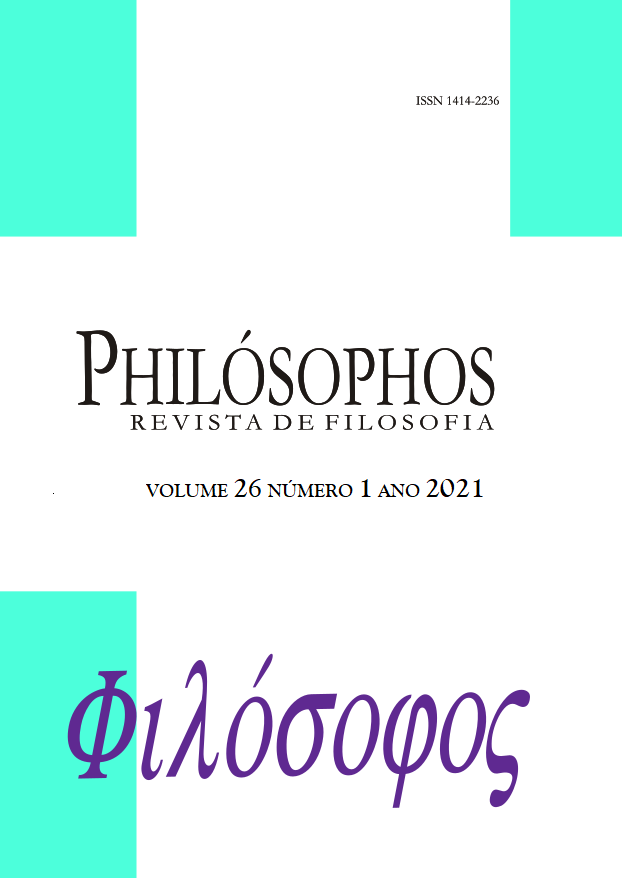Platone Plato and the "deliberate desire"
Intelectualism and teleology of desire in Plato's Ethics
DOI:
https://doi.org/10.5216/phi.v26i1.67152Abstract
Traditionally there is a significant difference beetween the doctrine of action attributed to Socrates and that attributed to Plato and it was established for the first time by Aristotle. According to the philosopher, Socrates defends an intellectualistic doctrine of human action, while Plato, from the Republic, distinguishes the rational from the irrational part of the soul, this one with passionate forces that influence the psychic mouvement. Through an analysis of the ethical doctrine in the Protagoras, we defend the idea that intellectualism entirely pervades Plato’s moral theory; but that within it, reason and desire contribute to a joint process.
Downloads
Downloads
Published
How to Cite
Issue
Section
License
Copyright (c) 2021 Philósophos a journal of philosophy

This work is licensed under a Creative Commons Attribution-NonCommercial-NoDerivatives 4.0 International License.
Authors who publish in this journal agree to the following terms:
- Authors retain copyright and grant the journal right of first publication, with the work simultaneously licensed under a Creative Commons Attribution License that allows others to share the work with an acknowledgement of the work's authorship and initial publication in this journal.
- Authors are authorized to enter into separate, additional contractual arrangements for the non-exclusive distribution of the journal's published version of the work (e.g., publishing in an institutional repository or as a book chapter), with an acknowledgement of its authorship and initial publication in this journal.















